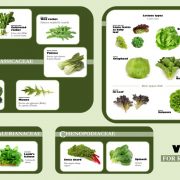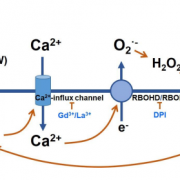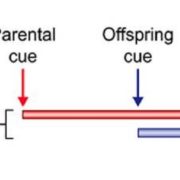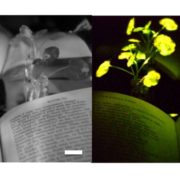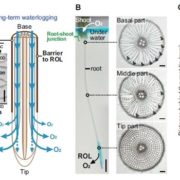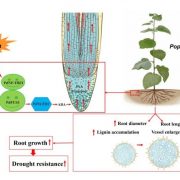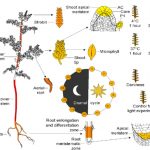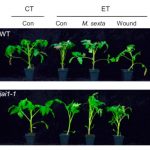Monitoring and mitigation of toxic heavy metals and arsenic accumulation in food crops: A case study of an urban community garden (Plant Direct)
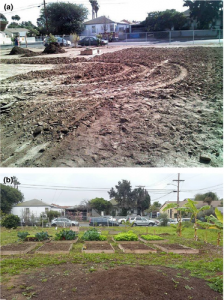 Urban gardens are a great way to introduce people to plant science, to bring fresh food into areas underserved by grocery stores (“food deserts”), and can promote a sense of community. But as Cooper et al. observe, many potential sites can be contaminated with heavy metals (lead, cadmium) and metalloids (arsenic, As) as a consequence of former industrial activities, pesticide residues or car emissions. In this study, the authors tested metal and As levels in fruit tree leaves and fruits, and in foods grown at soil level such as chard and strawberry. Potentially harmful contaminants were found in tree leaves but not fruits, and in foods grown in contact with soil. Raised beds filled with clean soils were introduced, which has alleviated the potential problems. The authors recommend several avenues through which soil and plant samples from community gardens can be analyzed and monitored. (Summary by Mary Williams) Plant Direct J. 10.1002/pld3.198
Urban gardens are a great way to introduce people to plant science, to bring fresh food into areas underserved by grocery stores (“food deserts”), and can promote a sense of community. But as Cooper et al. observe, many potential sites can be contaminated with heavy metals (lead, cadmium) and metalloids (arsenic, As) as a consequence of former industrial activities, pesticide residues or car emissions. In this study, the authors tested metal and As levels in fruit tree leaves and fruits, and in foods grown at soil level such as chard and strawberry. Potentially harmful contaminants were found in tree leaves but not fruits, and in foods grown in contact with soil. Raised beds filled with clean soils were introduced, which has alleviated the potential problems. The authors recommend several avenues through which soil and plant samples from community gardens can be analyzed and monitored. (Summary by Mary Williams) Plant Direct J. 10.1002/pld3.198


